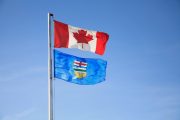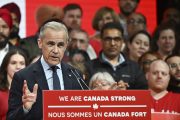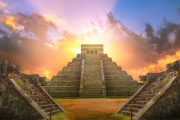Nicaraguan President Daniel Ortega appears to be back on track with closing a deal for Communist China to begin building an inter-oceanic waterway to rival the Panama Canal. The South China Morning Post, on October 29, reported:
A top-level Nicaraguan delegation — headed by the president’s son — traveled to mainland China and Hong Kong last week to discuss what could be the world’s largest waterway project, the South China Morning Post has learned.
The 21 politicians, academics and leading businessmen were hosted by HKND, the Hong Kong-based developer established only last year, which has been tasked by the Nicaraguan government to build a $40-billion (HK$310-billion) canal through the Central American country.
Laureno Facundo Ortega Murillo, the son of Nicaragua’s president Daniel Ortega, led the group, which travelled to Beijing, Wuhan, Xuzhou, and Hong Kong.
In June of this year, President Ortega, who leads the Marxist-Leninist Sandinista party (Frente Sandinista de Liberación Nacional, or FSLN) and is a leader of the São Paulo Forum, an international consortium of terrorists and terrorist-supporting states (see here and here), signed a deal for the ambitious canal project with Wang Jing (shown), CEO of Hong Kong Nicaragua Canal Development Investment Co. Ltd. (HKND), a mysterious new Chinese company that claims to be privately owned and independent of the Chinese government. But, as with virtually all Chinese companies, HKND remains opaque and refuses to reveal financial data, governing structure, and stock holdings that are routinely publicly available from companies in market economies. Wang Jing himself is similarly an enigma wrapped in a mystery. One of China’s new billionaires, Wang, reported to be 41 years old, amassed his wealth as CEO of Xinwei Telecom Enterprise Group, which manufactures wireless devices, telecom terminals, and core network devices.
“Wang has business interests in infrastructure, mining, aviation and telecommunications, according to HKND’s website,” Bloomberg News reported earlier this year. “He controls or serves as board chairman of more than 20 companies in 35 countries around the world, the website shows.” However, the Bloomberg article noted, “Wang pledged transparency for the project but gave very few details about his own background. He refused to answer a reporter’s question about where he attended school.”
“I am 100 per cent certain the construction will begin in December 2014 and we will finish in five years in 2019,” Wang was quoted as saying in a July 30 report in London’s Telegraph. However, within a few days of that rosy prediction, the project was engulfed in controversy and uncertainty, as opposition coalesced in Nicaragua over concerns that the project was being rushed through without proper feasibility and environmental studies being completed. The 178-mile route that Wang has announced as the path for the waterway is actually one of six proposed options, each of which has its own engineering, economic, social, and environmental challenges. Nicaraguan opponents — including prominent Sandinistas — were angered that Wang had jumped the gun and announced a specific route as a done deal, causing a political backlash against Maximum Leader Ortega, including street demonstrations and denunciations in the national legislature.
The recent delegation visit led by the junior Ortega was an obvious attempt to smooth the troubled waters and keep the project (and its funding) rolling. Wang’s Xinwei corporate website carried a brief press release on October 28, putting a happy face on the visit and prospects for the canal venture. The release stated:
During the extension from Oct 19 to Oct 26, 2013, at the invitation of Mr. Wang Jing, President and Chairman of Xinwei Telecom Enterprise Group (hereinafter referred to as “Xinwei”), the Nicaraguan delegation composed of 20 plus high-level representatives from various walks of life paid a visit to China and both sides conducted cheerful exchanges. The delegation fully recognized and highly praised the fruits made by HK Nicaragua Canal Development Investment Co. LTD (hereinafter referred to as HKND GROUP), and reckoned that various societies in Nicaragua will fully support Xinwei and HKND GROUP in their businesses in Nicaragua and better facilitate the building of Xinwei Telecom Network and the Grand Canal. During the visit, President Wang met with members of the delegation and was present in relevant activities.
The Xinwei release also provided five photographs of the Nicaraguan delegation at Xinwei and HKND headquarters and other venues, including a group photo of Ortega and his fellow Nicaraguans with Wang Jing.
“We are in a special moment in China and in Nicaragua,” said delegation member Francisco Telemaco Talavera Siles, president of the National Council of Universities. “We are starting a new historical phase that is going to see closer relations,” he told the South China Morning Post. “This project opens [up] the possibility of closer relations with the government and people of China.”
The dream of a canal through Nicaragua has captured the minds of men for generations and Nicaragua was a top contender to the path that was eventually selected in Panama. How the Nicaraguan canal — if and when it is completed — would impact the competitiveness of the Panama Canal (which is undergoing a multi-billion-dollar expansion and update) is the subject of much debate.
China’s Geo-strategic Moves in the Western Hemisphere
What isn’t debatable is that the canal venture represents another major step in Beijing’s geo-strategic plans for Latin America, as well as for its expanding “blue water” naval forces. Next door in Honduras, President Porfirio Lobo signed, in June, a memorandum of understanding with the China Harbour Engineering Company (CHEC) for the construction of an inter-oceanic railroad. The massive, multi-billion-dollar project is reported to include up to 10 rail lines, as well as a pipeline, refinery, dockyard, and fiber-optic facility. In September, Venezuelan President Nicolas Maduro met in Beijing with Xi Jinping, China’s newly minted president and head of the Chinese Communist Party that actually runs China. China, which sank upwards of $50 billion in loans and investments into Venezuela during the reign of Marxist strongman Hugo Chávez, was understandably nervous when Chávez died of cancer earlier this year. However, Maduro, who was a member of Chávez’ inner circle, gives every indication of continuing the “Bolivarian Revolution” path set by Chávez. “The main goal of this trip is to further consolidate and expand the strategic partnership between Venezuela and China that President Chávez began with Chinese leaders,” Maduro said at Beijing’s Great Hall of the People after a welcoming ceremony, according to a report from Dawn.com. Xi responded, the report states: “President Maduro, you are China’s good friend. This visit to China will certainly further promote China-Venezuela relations to new heights.”
Nobody Here But Us Entrepreneurs
Nicaragua’s Ortega and Wang Jing are intent on portraying the new mammoth canal project as a purely commercial venture, with no connection to the Beijing regime. According to Bloomberg, Wang claimed “there is no relationship between HKND Group and the Chinese government.” The International Business Times similarly reported: “Wang also said that this is a private project, and the Chinese government has no stake in it.” It is a familiar theme that Wang has repeated often. The South China Morning Post reported that Wang “insisted that his momentous canal project is strictly commercial.” “I hoped this visit was relatively low-key,” he told the Post, concerning the Ortega delegation visit. “The Chinese Ministry of Foreign Affairs in Beijing was also keen to clarify earlier this year that the canal project was not government-backed,” the Post said.
However, no one with even a basic understanding of the workings of China’s state-owned enterprises (SOEs) or its nominally private “state champions” believes that Wang and HKND’s canal project could ever have gotten off the ground without the explicit approval and extensive involvement of the Chinese government. Although Wang’s glowing profiles in business publications regularly refer to him as an “entrepreneur,” his Xinwei corporation and HKND are undoubtedly creatures of the state. Xinwei has received billions of dollars in credit from the China Development Bank (CDB), China’s major official state bank, for Xinwei’s business expansion overseas. According to the Telegraph, Wang “declined to reveal if CDB would again be involved” in funding the canal.
“Whether it is China Development Bank or other banks there is no difference; they are financial institutions. There will be no hidden politics,” he said. Wang’s remarks to the contrary notwithstanding, there is, of course, a great deal of “hidden politics” involved already, and there is a big difference between financing by private investors and financing by the CDB. The CDB is an instrument of the Chinese government and every project it funds must conform to the dictates and the strategic objectives of the Communist Party, as dictated by the seven-man Standing Committee of the Politburo, now headed by Xi Jinping.
A little digging on the Xinwei corporate website quickly confirms that Wang is not the rags-to-riches “entrepreneur” he casts himself as, and his ties to government officials are typical of the Chinese billionaire species. Under the heading “Government Recognition,” Xinwei proudly links to pages displaying Wang’s close relationship to virtually all of the regime’s top leadership.
First on the list is a photo of Xi Jinping himself at Xinwei, with this headline: “Mr. Xi Jinping, General Secretary of the CPC (Communist Party of China) Central Committee, President of P.R.C. (People’s Republic of China) and Chairman of the Central Military Commission, inspected demonstration of Xinwei products.”
The next link takes one to a photo of China’s No. 2 leader, Premier Li Keqiang, visiting Xinwei, with this caption: “Mr. Li Keqiang, Member of the Standing Committee of the Politburo of the CPC Central Committee and Premier of the State Council, visited Xinwei.”
Additional links show current Politburo Standing Committee members Zhang Dejiang and Wang Qishan at Xinwei, while others feature former President Jiang Zemin, former Premier Wen Jiabao, and other top-rung Communist Party officials meeting with Wang. Wang and HKND are definitely connected.
The Telegraph article cited above notes:
The walls of Mr. Wang’s telecom company are hung with pictures of China’s top leaders. His meeting room boasts an enormous mural of Chairman Mao, and his office contains dozens of scale models of Chinese army tanks, jets, rocket launchers and satellites. But he insisted he has no government connections.
These repeated protestations are patently risible, especially in light of the fact that the army of engineers Wang has drafted to design and build the canal are employees of one of China’s major state-owned enterprises. The South China Morning Post reported:
HKND has hired a team of engineers from the state-owned China Railway Construction Corporation (CRCC) to plan and design the canal…. The Nicaraguans visited 4th Institute, a CRCC subsidiary, which is in charge of designing the canal, and the corporation’s 11th Bureau, responsible for building the canal, in Wuhan as part of the trip, a HKND employee said. The delegates also visited the Three Gorges Dam, China’s largest civil engineering project, which was designed by the same group of engineers.
The connection to the infamous Three Gorges Dam will likely lead to more opposition in Nicaragua, rather than confidence. Promoted for years as one of China’s proudest showcases, the massive project is now seen as an environmental disaster and a corruption fiasco that also resulted in the forcible relocation of nearly two million residents whose homes, farms, villages, and towns stood in the path of the Party’s grandiose plans. Many Nicaraguans rightfully worry that they may likewise suffer a similar fate before the Chinese-Sandinista central planners.
For now, it appears that the plans for the joint China-Nicaragua new canal connecting the Pacific and Atlantic Oceans are proceeding apace. But in the atmosphere of purges and “reforms” now going on under Xi Jinping, nothing is certain. Wang Jing, the peacock of today, may end up as a feather duster tomorrow, facing the same fate that has overtaken many of China’s other billionaires and party princelings in recent months, as we have reported.
Photo of Wang Jing, chairman of HKND Group, at a press conference Beijing: AP Images
Related articles:
The Folly of Embracing China as a Financial Angel
China’s Princelings and Billionaires Biting the Dust Under Xi Jinping
China: The New Investment Savior?
China’s “Journalists” Ordered to Take New Propaganda Training
Chinese State-Owned Company Purchases Smithfield Foods
Putin & Xi Stress Beijing-Moscow Ties at APEC
Bo Xilai Purged in China’s Communist Party Shakeup
Decades of Suicidal Policies Vis-à-vis Russia and China
Obama’s China Trade Solution: Give Them Our Hi-Tech
U.S. Ambassador Outs Powerful Totalitarian Cabal in Latin America
Exposure of Radical CFR Latin America Boss Offers Broad Insight




